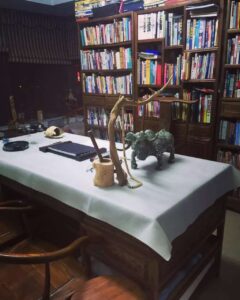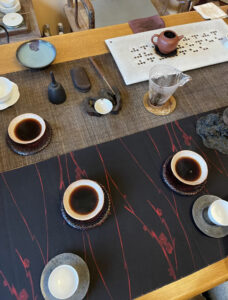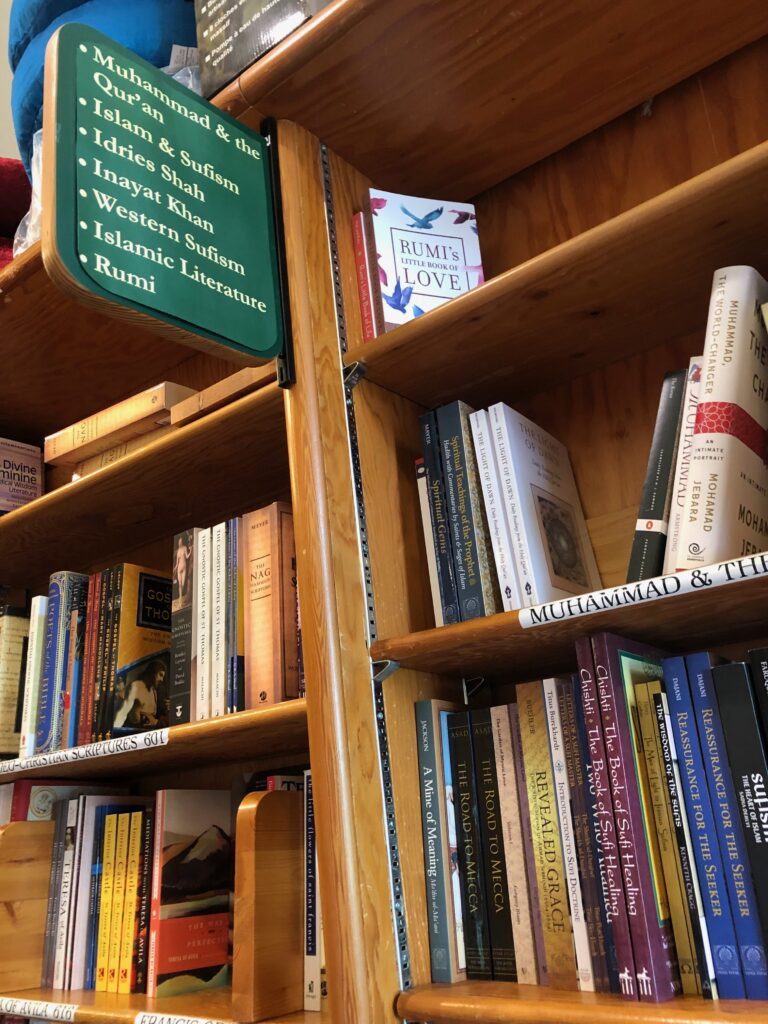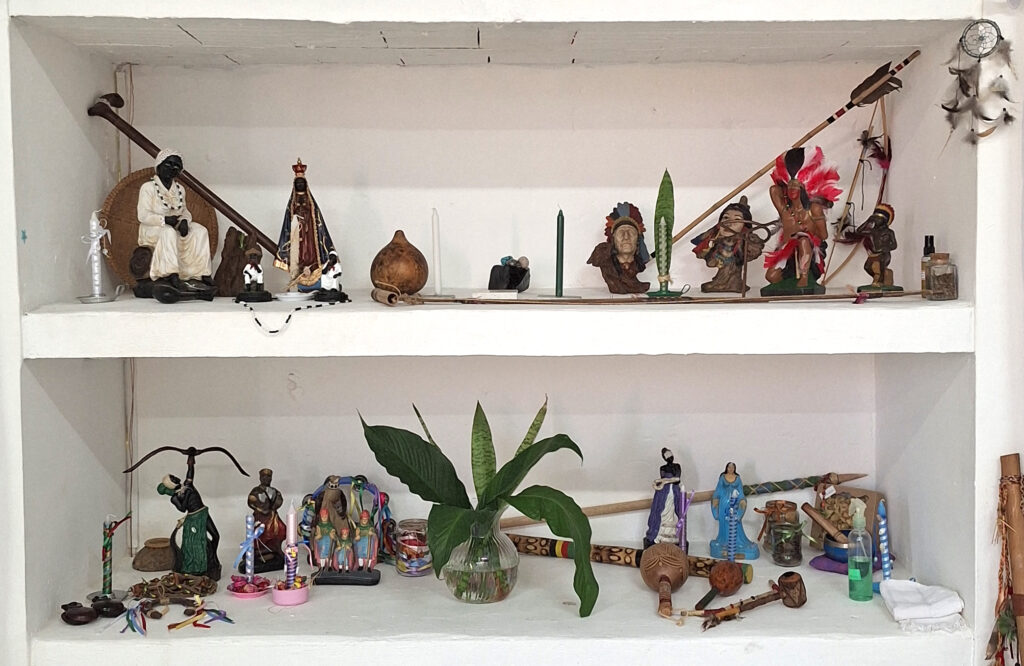By Zheng Liu
I arrived at the office and waited for him. When I opened the door, everything seemed familiar and unfamiliar.
Sunlight streamed through the floor-to-ceiling windows, casting a gentle texture on the redwood bookshelves, chairs, and tables. The shelves now held more books, some of which were piled haphazardly on the floor. In front of the bookshelves was a large redwood desk. It looked as if he was still practicing calligraphy, as writing brushes and ink were scattered randomly across the table.
I took a deep breath and made my way between the bookshelves and the desk, heading straight for the tea table near the window. I settled down, prepared a cup of red tea, and gazed outside.
The sound of the key turning in the lock brought me back to reality. “I have not seen you in a long time,” he said as he walked towards me. He looked thinner than before. I knew he had been training boxing almost every day for the last three years. His hair had become even grayer.
“I am alright, and it has been three years since I last saw you. How are you?’ I tried to stay calm, but the moment he walked through the door, I immediately sensed that he must feel tired in recent years. How would I know? I could not tell if it was because his hair was turning more silver, or if the daily intense boxing training did not make him look fresh. He looked tired, and his eyes looked tired.
He took a seat in front of me. I poured red tea into his cup, and he took a sip. “I am doing well. How were your studies in the UK?”
After completing academic training in British anthropology, this is the first time I have met my research subject, a professional diviner, and my father. What I have learned in the UK is that anthropologists see the other as the other, but in my case, it is different. He is not the other, he is my father.

The above ethnographic narrative reflects my role in my ongoing PhD project “Concealment and Secrecy: The Transmission of Yijing and Divination Techniques in Contemporary China.” I wrote these paragraphs during the workshop titled “Weaving the World: Writing Evocative Ethnography: A Four-Day Workshop at CAS-E,” by Professor Paul Stoller in the summer of 2023.
As a second-year Ph.D. student, I felt like I was always “somewhere in between” (Stoller 2023). There was a moment when I was a practitioner, and there was a moment when I was an academic. As I delved deeper into my doctoral research, I gradually began to feel that it was both “a blessing and a curse” to be an insider and a researcher at the same time.
In the past, studies on divination were mainly conducted by outsiders, whereas insiders are able to explore communities that can be quite private and hidden from outsiders (Gans 1997). Due to the sensitive nature of Chinese divination in politics, and concerns about the privacy of diviners and their students or clients, in-depth anthropological research requires anthropologists to establish close relationships not only with the diviners but also with their clients or students to obtain permission for the research.
My role as an insider has the distinct advantage of easier access to the phenomenon under study, which is the basis for the uniqueness of this research. For many years, I was at the heart of the transmission. I have strong ties with the research subjects, so I can “short-cut” establishing a research relationship and get constant access to do research. For most outsiders, Chinese divination and the systems of knowledge based on it, “the Yijing or Classic of Changes, is notoriously opaque and hard to interpret” (Zeitlyn 2001) and “extremely ancient, diverse in its origins, unsystematic, and subject to radically different readings and understandings” (Smith 2008). My expertise in various Yijing divination traditions allows me not only to understand its unique text-based system, but also to further explore how knowledge and practice are structured, ordered, and controlled within the community.

However, growing up in this field is also a problem. I was too familiar with the research subjects, which often led me to overlook key information or approach the investigated subjects from a particular angle. I was also too closely connected to the field, which made it difficult for me to reconcile my strong sense of empathy for Chinese divination and diviners with my role as a researcher. I think the ethnographic narrative at the beginning of this article shows my struggle.
When you are part of your own research, how to professionally play the game of “involvement and detachment” in doing fieldwork and writing anthropological work? I hope to find a comprehensive answer to this question during my upcoming anthropological fieldwork in Mainland China and Hong Kong.
#
Zheng Liu pursued an MA (2020) in Socio-Cultural Anthropology at Durham University, and now she is a Ph.D. student at FAU Erlangen-Nürnberg. Her doctoral research project was funded by RENSEP.
___
References
Gans, H. J. (1997). Toward a reconciliation of “assimilation” and “pluralism”: The interplay of acculturation and ethnic retention. International migration review, 31(4), 875-892.
Smith, R. (1991). Fortune-tellers and Philosophers Divination In Traditional Chinese Society. Westview Press.
Stoller, P. (2023). Wisdom from the Edge: Writing Ethnography in Turbulent Times. Ithaca: Cornell University Press.
Zeitlyn, D. (2001). Finding Meaning in the Text: The Process of Interpretation in Text‐Based Divination. Journal of the Royal Anthropological Institute, 7(2), 225-240.
CAS-E blogs may be reprinted with the following acknowledgment: “This article was published by CAS-E on November 14th, 2023.”
The views and opinions expressed in blog posts and comments made in response to the blog posts are those of the author(s) and do not necessarily reflect the views and opinions of CAS-E, its founders, its staff, or any agent or institution affiliated with it, nor those of the institution(s) with which the author is affiliated.








